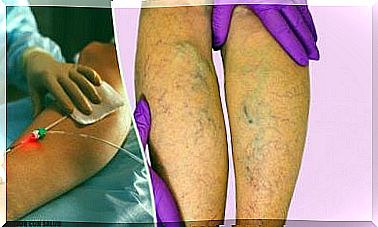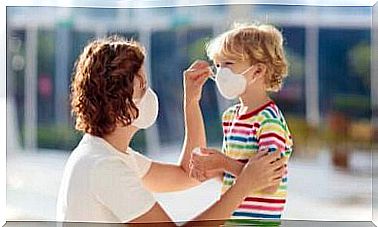10 Things You Can Do To Fight A Cold
Maintaining a minimum of rest is essential to ensure that the cold and its symptoms go away, because our body needs to collect energy to fight viruses.

The common cold is one of the diseases that we contract when our immune system is weakened. It is a viral infection that compromises the health of the upper respiratory tract (nose and throat).
It appears more frequently on cold days, although it can appear at any time due to the attack of several types of viruses.
Although it is considered harmless and usually does not cause complications, it nevertheless generates uncomfortable symptoms which can be a cause of disability for several days.
For this reason, it is therefore important to know how to fight colds at home, adopting healthy habits to promote respiratory health without the need for medication.
On this occasion, therefore, we want to look at some of these related causes and 10 things we can all do without too much difficulty.
Why do colds appear?
There are a wide variety of viruses that can cause a cold. However, most of the time this is due to a rhinovirus attack.
These microorganisms manage to enter our body through the mouth, eyes or nose. They can be spread to other people through contact with drops in the air when an infected person coughs, sneezes or talks.
To a lesser extent, they can also be infected through the use of utensils, towels or toys. There is a possibility of contagion if we touch the eyes or the mouth after this contact.
Between the population and the risk factors, we find:
- Children under 6, especially if they are in daycare
- People with weak immune systems
- The winter or fall season
- Tobacco use
- Being in contact with someone who is infected
Cold symptoms
Cold symptoms usually appear one to three days after contact with the virus.
These can manifest in different ways in patients, depending on the level of response with which our immune system reacts.
The troubles include:
- Nasal congestion
- Sore throat
- Dry or phlegmatic cough
- Chest congestion
- Pain in the body and head
- Sneezing
- Malaise
Things that can help you cope to fight a cold
Currently, there are many over-the-counter medications that can control cold symptoms. However, in addition to these, it is also good to take into account some measures that allow you to fight it naturally.
1. Get a good rest
It is indeed essential to rest in order to avoid the complications that follow.
The body has a hard time fighting viruses and needs you to save your energies.
2. Stop smoking
Smoking can cause serious complications in patients with a cold. Therefore, if you are used to smoking, it is necessary to eliminate this habit in order to recover quickly.
3. Eat well
Eating well is the key to building defenses.
If you are going through this disease, also make sure you are eating a healthy and balanced diet, at least three times a day.
4. Stay warm
Cold climates tend to make the symptoms of this disease worse.
Therefore, you should stay warm until you feel better.
5. Drink lots of fluids
It is essential to increase the intake of water and healthy drinks to avoid dehydration during the infection. We should try to consume at least 2 liters of fluid per day.
6. Eat citrus fruits to fight a cold
The abundant consumption of citrus fruits gives the body additional vitamin C.
This nutrient thus strengthens the immune system and improves the response against the viruses that produce the infection.
7. Wash your nose

If you are suffering from nasal congestion, you should consider a wash.
It is a simple, painless procedure that helps you get rid of excess mucus.
8. Do not use antibiotics
Pay attention ! Colds cannot be combated with antibiotics.
The disease is caused by viruses and these drugs are useful in bacterial infections.
9. Prepare herbal teas to fight a cold
There are dozens of herbal, spice, and fruit infusions available that can help alleviate some of the common cold symptoms.
Their consumption several times a day thus decreases congestion and headaches.
10. Avoid sudden temperature changes to avoid a cold
One of the reasons it is best to rest on cold days is to prevent sudden changes in temperature. While they don’t always produce a significant impact, they sometimes prolong symptoms.
Do you have the symptoms of a cold? Try to adhere to all recommendations to speed up your recovery process. If you have a fever or trouble breathing, then see a doctor.
Although colds rarely get complicated, some cases can trigger ear infections, asthma attacks, or also acute sinusitis.









